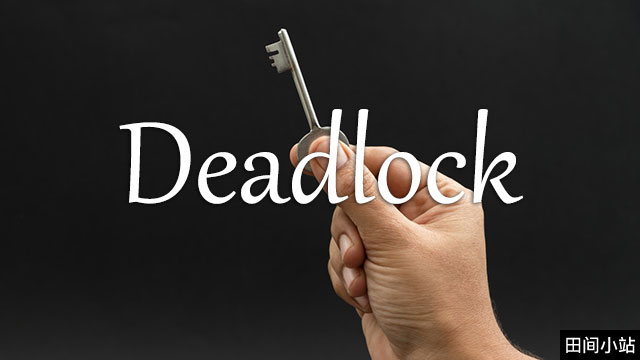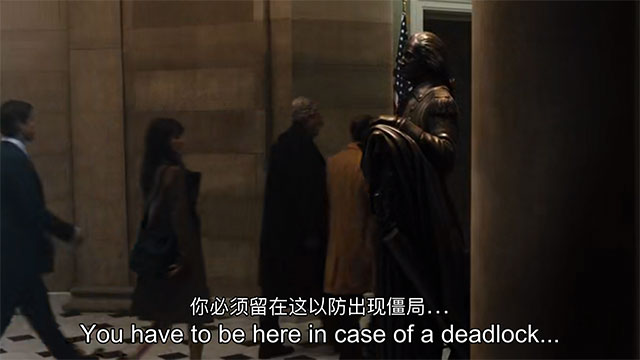
SAT TEM8 GRE
外刊例句
- The best way to break the deadlock would be for the West to arm and train selected rebels, as it should have done almost from the start of the violence.
打破僵局的最好办法是西方武装和训练精挑细选的反对派,战争开始之初就应该这样做。
——《经济学人》 - But he has failed to find a negotiated end to the deadlock, which has paralyzed the capital and left his government badly weakened.
但是他没能通过谈判途径打破僵局,首都已经因此陷入瘫痪,他的政府被大幅削弱。
——《纽约时报》
基本释义
[noun] a complete failure to reach agreement or settle an argument
[名词] 完全未能达成协议或解决争议
深入解读
在英式英语中,deadlock作名词指的是“没有弹簧的锁(a springless lock that opens with a key)”,这个含义最早出现于1808年。而早在1779年,deadlock就被用于表示“僵局”或者“僵持(complete standstill)”,始见于英国剧作家谢丽丹(Richard B. Sheridan,1751—1816)所作的《批评家》(The Critic,1779)一剧:
I have them all at a dead lock! For every one of them is afraid to let go first!
我使他们陷入了僵局!因为他们每个人都害怕先放弃。
影视用例

出自2013美国灾难动作电影《惊天危机》(White House Down)。该片讲述美国白宫被恐怖分子占领,一名普通的警察躲在白宫中偷偷将美国总统救出白宫的故事。其故事题材与同年电影《奥林匹斯的陷落》(Olympus Has Fallen)类似。
同近义词
- stalemate: a situation in which neither side in an argument or contest can win or in which no progress is possible
- impasse: a difficult situation in which no progress can be made because the people involved cannot agree what to do
- standoff: a stalemate or deadlock between two equally matched opponents in a dispute or conflict
